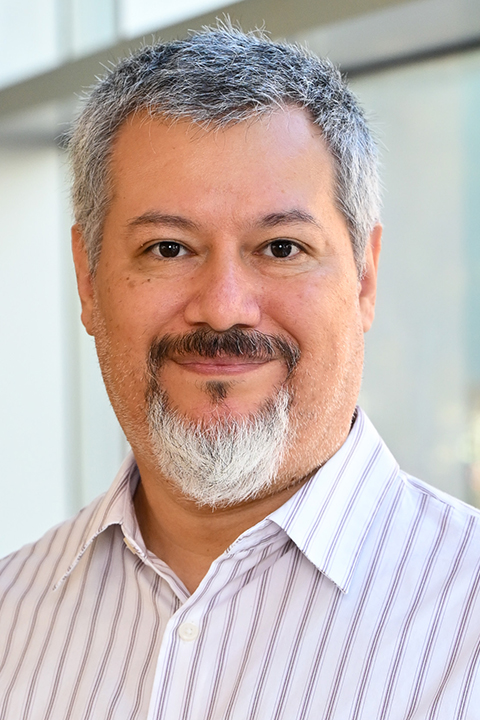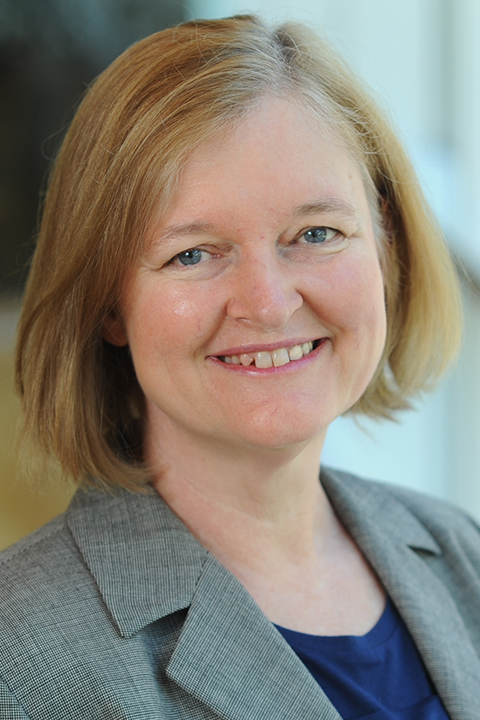Social Work
This document outlines the Libraries’ general policy on collections for the Columbia University School of Social Work, but it is not intended to be a rigid set of rules; collection suggestions from students and faculty are welcome.
The Social Work Library is the oldest research-level collection on social work and social welfare in the United States. In 1898, the first formal classes in “social philanthropy” were offered by the Charity Organization Society (COS) of New York City, which was the School of Social Work’s earliest entity. The historical collection previously belonged to the Russell Sage Foundation, which served as the primary research library for the New York School of Social Work (now known as the Columbia University School of Social Work). The library and the school formally became part of the university’s Morningside Heights campus in 1971.
The historical collection includes the Brookdale Memorial Collection on Gerontology and the unique Social Work Agency Collection, which includes ephemera and reports starting well before 1900 and is housed in the Lehman Social Sciences Library. Special materials related to this collection, including New York-area settlement house materials and papers related to the Community Services Society of New York, can be viewed in Columbia University's Rare Book & Manuscript Library (RBML).
The collection actively supports the scholarly pursuits of the School of Social Work. Selection for course reserves is up to individual faculty members. The Librarian will do whatever is possible to secure specific materials absent from the collection.
a. Undergraduate
Columbia University does not offer an undergraduate degree in social work; however, the library does support undergraduate students from Columbia and Barnard in their research on social work issues.
b. Graduate and Professional Schools
The Libraries collects materials in support of master’s and PhD programs. Master of Science in Social Work can be earned on campus or online. The Dialectical Behavior Therapy Program requires an additional application within the School of Social Work and provides nine credits worth of material over the course of one year.
There are nine dual degrees offered with other professional schools at Columbia: business, divinity, international affairs, Jewish studies, law, public health, public policy and administration, special education, and urban planning.
Areas of established specialization are child welfare, community organization, criminal justice, family interaction, gerontology, industrial social work, international social welfare, marriage and divorce, mental health, poverty, social policy, social work, social welfare history, substance abuse rehabilitation, and therapies.
c. Institutes, Interdisciplinary Programs, etc.
In addition to the programs listed above, the Libraries’ collection also supports the work of the following organizations:
The China Center for Social Policy is the first center founded in the United States in a school of social work. Scholarship in this center is interdisciplinary and global.
The Columbia Population Research Center (CPRC) is an NICHD-funded population research center co-directed by the School of Social Work’s Jane Walfogel and Jennifer Hirsch from the Mailman School of Public Health.
The Center for Complicated Grief is directed by the School of Social Work’s Dr. Katherine Shear and receives research grants from the National Institute of Mental Health.
The Global Health Research Center of Central Asia is a multidisciplinary team established by Columbia University in 2007 and is led by School of Social Work faculty. The center creates solutions to public health and social issues in Central Asia.
The Center on Poverty and Social Policy (CPSP) researches poverty in New York City and the United States.
The Center for Research on Father, Children & Well-Being is directed by Dr. Ronald Mincy, Professor of Social Policy and Social Work Practice at the School of Social Work.
SAFELab is a Columbia University affiliate research initiative that studies the ways in which youth of color navigate violence on- and offline. School of Social Work faculty member, Dr. Desmond Upton Patton is the founding director of SAFELab and leads interdisciplinary research from universities across the United States.
The Social Intervention Group (SIG) is a global program that conducts research and provides training regarding health and social issues. SIG is led by Dr. Nabila El-Bassel, Dr. Louisa Gilbert, Dr. Elwin Wu, and Dr. Timothy Hunt, all from the School of Social Work.
The Center for Social Policy and Practice in the Workplace (Workplace Center) was founded in 1968 and is a career readiness program for at-risk populations that evaluates performance standards in organizational systems and researches best practice.
d. Course Reserves
Course reserves for Social Work are located in the Social Work Library. Selection for course reserves is up to individual faculty members. The Librarian will do whatever is possible to secure specific materials absent from the collection.
a. Print
Print materials collected extensively include monographs, periodicals (including annuals), scholarly series, and reference tools. Print materials are mainly held in the Social Work Library, lesser-used items (including foreign-language material) are generally stored in the Libraries’ off-site storage facility (ReCAP).
b. Digital Collections
Columbia University Libraries offers a robust variety of electronic resources. The social work collection strives to offer the full array of available databases relevant to the field. The number of e-book titles purchased has been increasing over the last several years. E-books may be purchased outright or may be part of subscription services as appropriate, based on availability. Electronic items with reduced barriers to access are preferred, such as DRM-free e-books or multi-user licenses.
c. Media
Audiovisual materials and electronic tools are collected selectively but may be present as part of broader electronic collections or purchased upon specific request. The Libraries have purchased a number of Alexander Street Press collections that would be of interest to scholars in social work.
d. Languages Collected
We collect English-language materials extensively, Western European languages very selectively, and non-Western languages are collected rarely.
e. Chronological Focus
We collect materials focusing on current research topics and 20th-century topics extensively and 19th-century topics selectively.
f. Geographical Focus
We collect United States imprints extensively and materials published in Great Britain, Western Europe, Canada, and Latin America selectively.
g. Imprint Dates Collected
We collect current publications (within the last three years) and 20th-century materials extensively, and 20th-century materials very selectively.
The Social Work Agency Collection consists of approximately 35,000 volumes of primary publications produced by social work agencies ca. 1934 to 1970. It is one of the few collections of its kind and is used by people from all over the world, including social work/social welfare historians and social scientists. The collection has not been digitized and is semi-cataloged. It came with the School of Social Work from one of its prior locations, the Andrew Carnegie Mansion (now the Cooper-Hewitt, National Design Museum). The Librarian can assist researchers interested in accessing this collection.
The Rare Book & Manuscript Library (RBML) protects the Encyclopaedia of the Social Sciences Records, 1927 to 1934, which was a jointly sponsored project by American scholarly associations: the American Anthropological Association, the American Association of Social Workers, the American Economic Association, the American Historical Association, the American Political Science Association, the American Psychological Association, the American Sociological Society, the American Statistical Association, the Association of American Law Schools, and the National Education Association.
RBML also holds the records of the Community Service Society, which was at one time the largest social work agency in New York City. Social Work collections also consist of records for individual pioneers in the field, such as Lillian Wald and Dan Carpenter. Numerous New York settlement houses and Social Work organizations are also represented in the RBML collections, including Hudson Guild, East Side House, Union Settlement, Grosvenor Neighborhood House, Christodora House, the Goddard-Riverside Community Center, and others.
a. Consortia and Collaborative Collecting with Other Institutions
School of Social Work faculty Nabila El-Bassel and Neeraj Kaushal lead ASPIRE: Advancing Solutions In Policy, Implementation, Research, and Engagement for Refugees, a consortium that includes Columbia’s professional schools of: public health, medicine, education, and international affairs. ASPIRE is also in partnership with Columbia University Global Center in Amman, the University of Jordan, and universities in Turkey.
Additionally, the range of print materials focusing on the field of Social Work are greatly enhanced by Columbia’s participation in Borrow Direct, OCLC’s SHARES network of international academic libraries, and the Manhattan Research Library Initiative (MaRLI), a partnership with New York University and The New York Public Library. MaRLI also enables Columbia to expand its electronic access to electronic journals and books through cooperative subscription and purchase agreements.
b. Location Decisions and Selection for ReCAP
When acquired, physical items will primarily be sent to the collections housed in the Social Work Library, volumes with lower expected use will be sent to the Libraries’ off-site storage facility (ReCAP). Duplication of titles is limited to works identified by faculty as being central to a specific course. In these cases, no more than a few copies are obtained, which should be placed by the faculty member on reserve.
Deduplication only takes place when a title has been identified for relocation to ReCAP and a copy already exists on shelf at that facility. Even in this instance, the Librarian will inspect the copy that could potentially be withdrawn for any unique features/unusual provenance before assenting to deduplication.
c. Deaccessioning
Titles are generally deaccessioned only in cases where the physical copy is disintegrating and no longer serviceable in print/physical format. In these instances, the Librarian will evaluate whether to make a preservation photocopy, to create or acquire a digital surrogate, and/or whether to replace the physical copy with another. Resources on obsolete formats are reviewed by librarians on a case-by-case basis; in instances where the original format has artifactual value, it will be retained even after it has been digitized or otherwise reformatted. Distinctive collections held in the Rare Book & Manuscript Library, the C. V. Starr East Asian Library, Avery Architectural & Fine Arts Library, and the Burke Library at Union Theological Seminary are not deaccessioned.
d. Digitization and Preservation
Materials may be treated for preservation issues as needed.

Jeremiah Trinidad-Christensen
Head, Research Data Services
- Digital Scholarship

Sarah Witte
Research Collections & Services Librarian: Women & Gender Studies
- Humanities & History
Last updated: March 29 2019